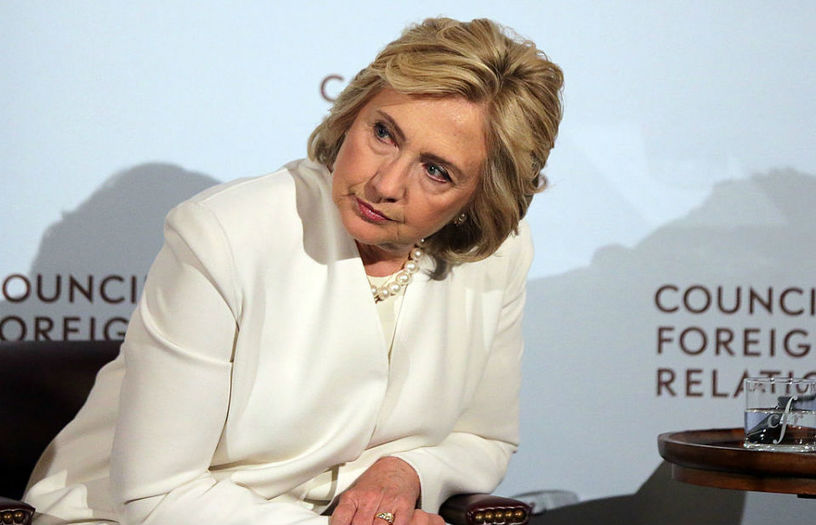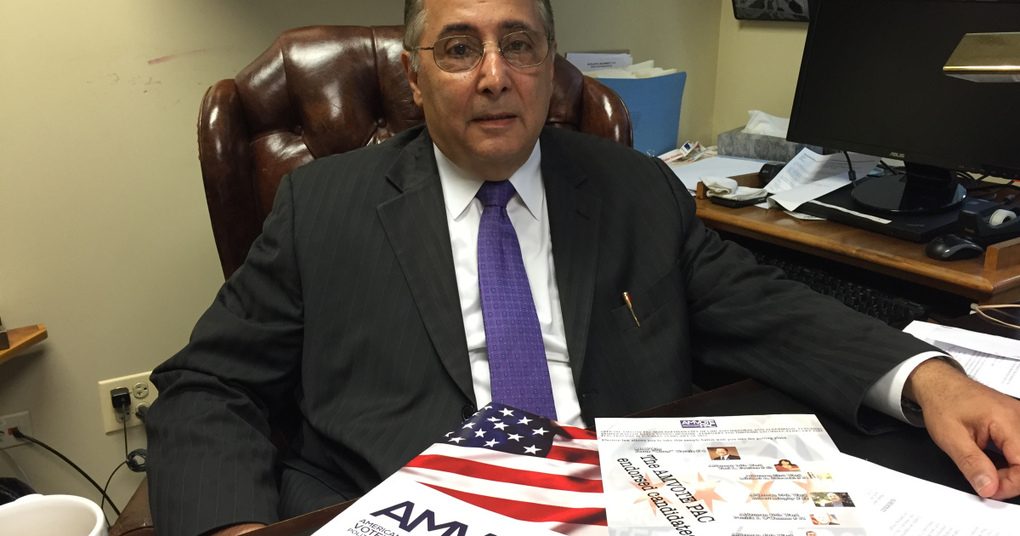To Hell In A Handbasket
James Zogby
The Huffington Post
This presidential election is exposing deep fault-lines in our society and the failure of some of the basic institutions of our democracy. If we don’t change direction, we’re on our way to “hell in a handbasket”.
I begin with the difficult situation in which Republicans now find themselves as they watch their out-of-control nominee wreaking havoc. Once the “party of Lincoln”, the GOP was, as late as a generation ago, led by George H.W. Bush and James Baker, in whose steady hands we emerged from the Cold War, and Congressional leaders like Howard Baker and Bob Michel who worked to forge consensus on critical issues of national concern. That, sadly, is no longer the case.
If it were not for the fact that the GOP brought this Trumpian disaster on themselves, I would almost feel bad for them. They spent the past seven years fueling hatred of all things Obama. Some in the party’s leadership thought they were being clever by nurturing the Tea Party, courting the “birthers”, and feeding anti-Muslim and anti-immigrant sentiment. Only now, when they see what the fruits of their labors have created, do they recoil in horror.
In many ways Donald Trump is the reductio ad absurdum of the past few decades of GOP politics. The efforts of some Republicans to distance themselves from their standard bearer is simply insufficient, at best, disingenuous, at worst. I, for one, can’t forget: their embrace of the Newt Gingrich-led “Park 51” campaign; their smiles at Sarah Palin’s hate-filled speeches; the coyness they demonstrated when confronted with the “birther” crowd; their “wink and a nod” at the bigotry that was on display when Arizona was passing its anti-immigrant legislation; or their outright refusal to consider any meaningful gun control measures in the face of the repeated slaughter of innocents.
At this point, the only honorable thing for decent GOP leaders to do is to accept paternity for the many threads that have combined to nominate Donald Trump. Distancing themselves or even denouncing him will not do. They need to offer the country a heartfelt mea culpa.
The behavior of cable network news is another part of this distressing story. They have also played a role in fueling the Trump phenomenon. He was entertainment and was good for ratings. When he boycotted Fox, CNN stepped up. With “countdown clocks” in the lower corner of the screen, they breathlessly announced and then covered, in full, his rallies. They, and other networks, allowed him to “call into” their interview programs and hired his spokespeople as “analysts” and commentators—giving Trump unprecedented free media coverage.
To be fair, the network’s regular pundits would express perfunctory upset over Trump’s many outrages—suggesting, after each, “that this would finally do him in”. Because he was playing them like an instrument, all their criticism amounted to was more free media for the maestro.
We are now in the period between the conventions and Labor Day, when we enter the final stretch of this deeply troubling contest, and the same disturbing dynamics are still at work. Trump commits more daily outrages. GOP leaders act surprised, distance themselves, play coy (suggesting that he’ll soon turn the corner and become a “serious candidate”), or become defensive, trying to explain the inexplicable. The network pundits are once again proclaiming Trump “dead in the water” citing recent polls showing him down anywhere from 4 to 11 points. At the same time, they bizarrely host endless debates (or in the case of CNN “shout fests”) between Trump defenders and detractors arguing pointlessly whether he really was encouraging gun owners to assassinate his opponent or exactly what did he mean by saying that “Barack Hussein Obama is the founder of ISIS”? In the end, it becomes just a lot of noise and more free media for Trump.
While all this is going on, I’m watching the continuing coverage of Trump rallies—featuring casts of thousands, who cheer his every word, become gleeful at his insults, and share his anger at his (and their) many “enemies”. They don’t seem to care that he insulted a Gold Star Muslim family’s sacrifice, or playfully threatened his opponent with assassination, or repeatedly and brazenly lies. He is their champion and they appear to see attacks on him as attacks on them.
As I watch this play out, I look at the faces in the crowd and ask “who are these folks?” and “how is this happening?” The problem is not Trump, it is what we have come to call “Trumpism” and these folks are our fellow citizens and neighbors whose angst and anger we have ignored.
Here Democrats must also acknowledge a failing. For too long the party dismissed this demographic as not essential for their victories. They approached election after election focusing on what was defined as their “base vote”—educated women, “minority communities”, gays, young voters, various “issue-oriented” groups. etc. What was sometimes called the “white working class” or “white middle class” was ignored. They would be talked about or to, but they were never understood or meaningfully engaged. They were left hanging on the vine, unattended, ripe for exploitation.
They were economically, socially, and politically dislocated, and the root causes of their discontent were ignored. As some in the GOP courted them with coded (and sometimes not so coded) appeals to intolerance, fueling their anger, the results were dismissed as if it were a temporary disorder. While it is a disorder, we now see that it is not temporary. Decades of neglect and appeals to racism, immigrant baiting, and Muslim bashing have brought us to where we are.
The way forward, as Jesse Jackson used to say, is to retrace the steps we took to get into this deep hole in which we find ourselves. Bernie Sanders demonstrated that by sharing the rage of those who’ve been left out and by redirecting their anger to the rigged economy and political system that has impoverished and disempowered them it was possible to invest them in a multi-racial, multi-ethnic movement for change. There is a lesson here for all to learn. Instead of dismissing the rage of those who’ve been left out, or pitting them against other equally vulnerable groups—it is imperative to understand the root causes of their hurt and help them understand it as well.
The networks too have a responsibility. As educators of the public, they have a critical role to play in getting under the skin of stories and presenting thoughtful analysis. Instead of merely amplifying the partisan divide, pretending that their goal is balance, the networks can reclaim the lost mantle of journalism.
None of this will happen in this election cycle. But if we don’t make a determined effort to understand what we’ve done and take steps to change course, we may defeat Trump but see the root causes of Trumpism fester.
Source: www.huffingtonpost.com








